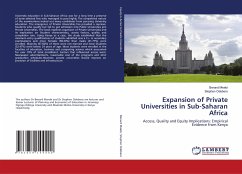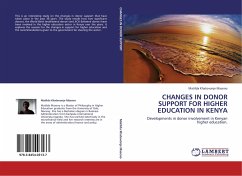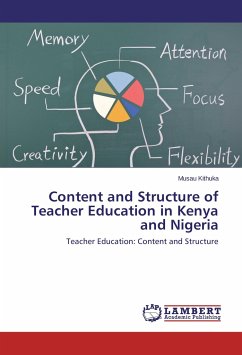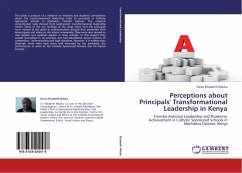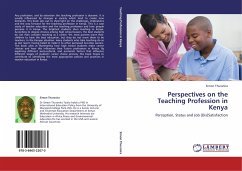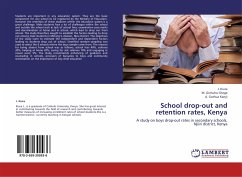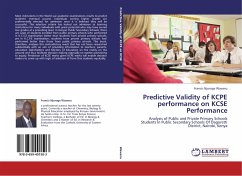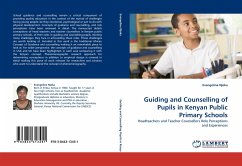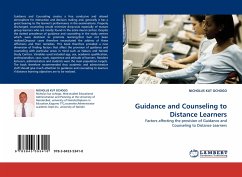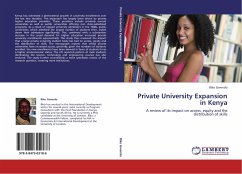
Private University Expansion in Kenya
A review of its impact on access, equity and the distribution of skills
Versandkostenfrei!
Versandfertig in 6-10 Tagen
39,99 €
inkl. MwSt.

PAYBACK Punkte
20 °P sammeln!
Kenya has witnessed a phenomenal growth in university enrollments over the last two decades. This expansion has largely been driven by private higher education providers. These providers include privately owned universities as well as public universities offering non state-subsidized programs. As a result of capped university admissions in the 1980s, public universities, which admitted the largest number of students then, scaled down their admissions significantly. This, combined with a substantive increase in the social demand for higher education increased private university enrollments expo...
Kenya has witnessed a phenomenal growth in university enrollments over the last two decades. This expansion has largely been driven by private higher education providers. These providers include privately owned universities as well as public universities offering non state-subsidized programs. As a result of capped university admissions in the 1980s, public universities, which admitted the largest number of students then, scaled down their admissions significantly. This, combined with a substantive increase in the social demand for higher education increased private university enrollments exponentially. This study thus reviewed the impact that a large private university student body has had on access, equity and the distribution of skills. The monograph reports that whilst private universities have increased access, generally, given the numbers of students enrolled, the new enrollments have been skewed in favor of students from a higher socioeconomic status. The oft reported pattern of male students dominating the science, technology and engineering courses has also endured. The study further recommends a more systematic review of the research question, covering more institutions.



